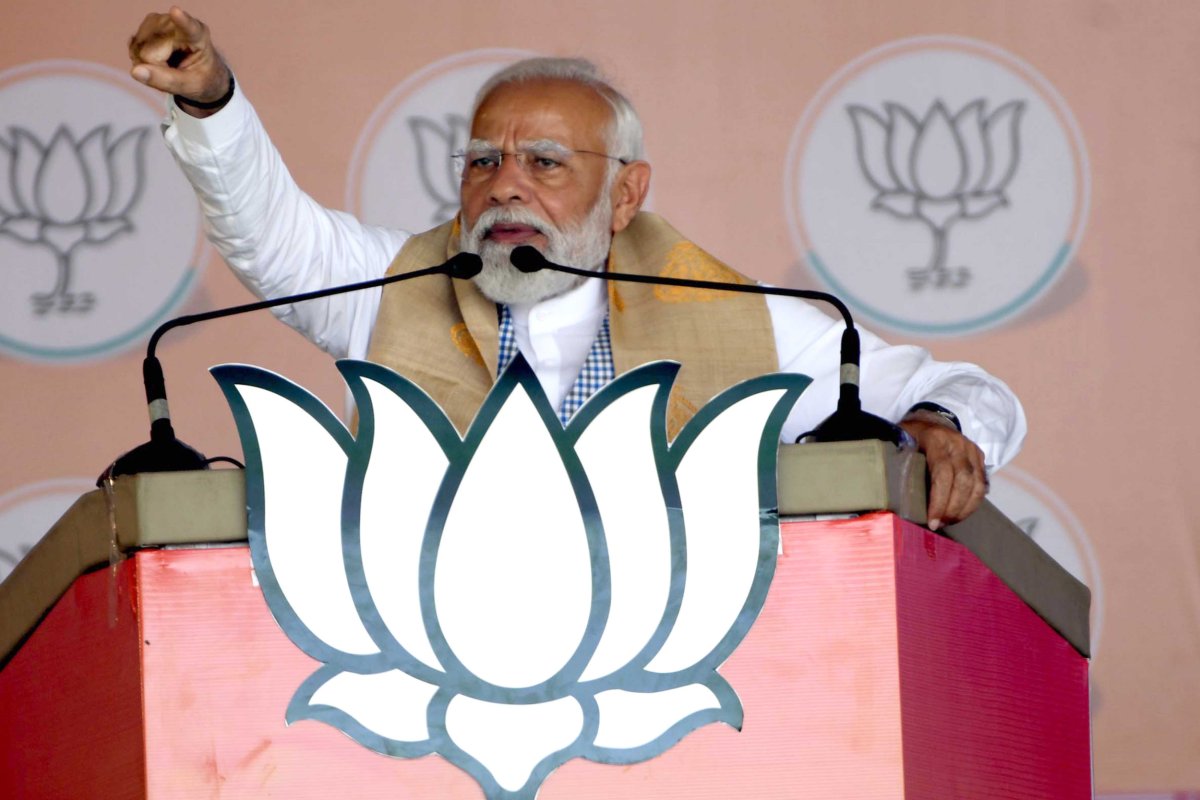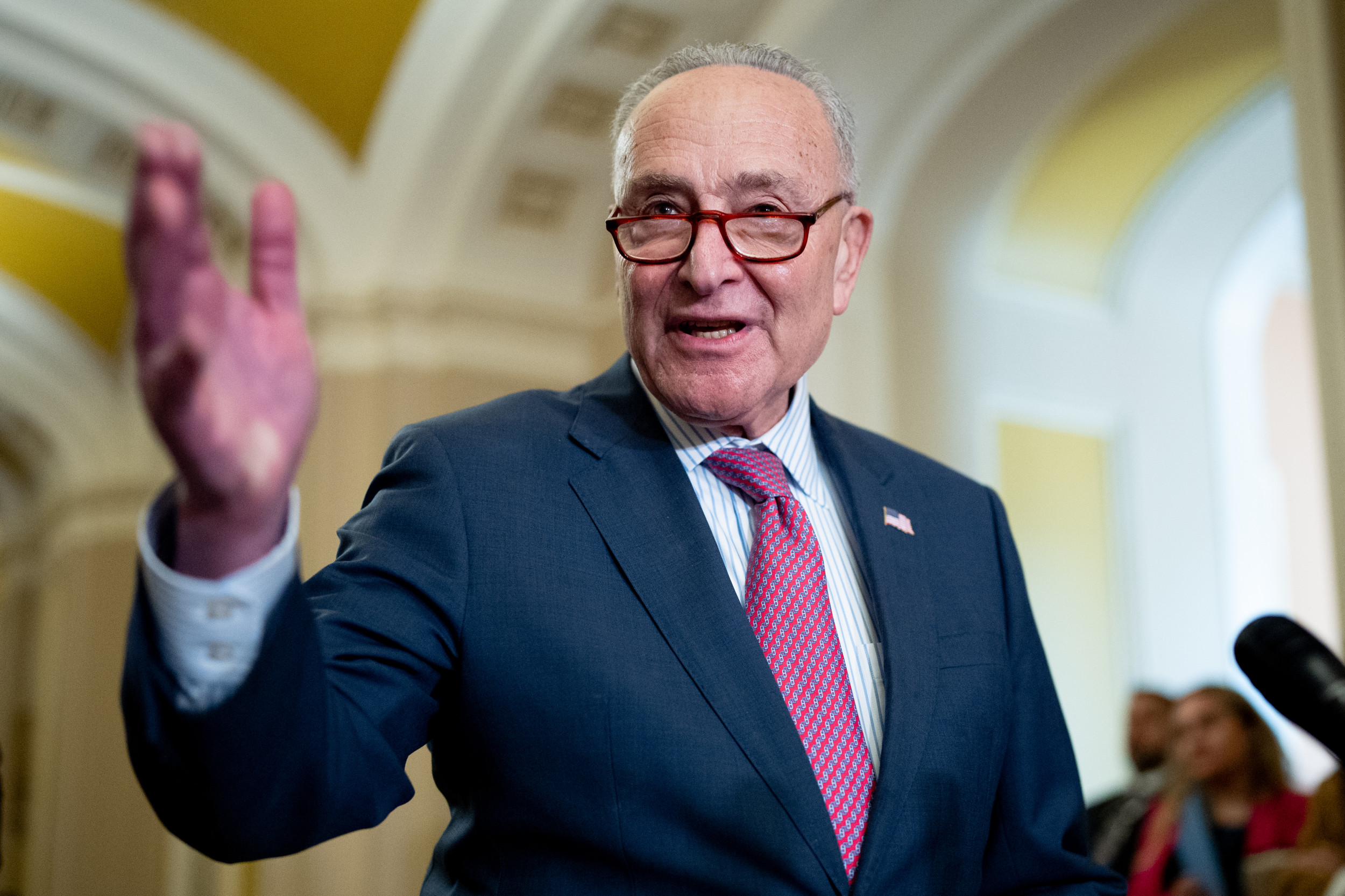Indian Prime Minister Narendra Modi has come under attack from political opponents for using the word "infiltrators" during a reference to Muslims in an election campaign speech.
The debate over Modi's comments and the context in which they were meant has added to tensions at a time of elections in which Modi's largely Hindu and nationalist Bharatiya Janata Party (BJP) is defending its majority in the Lok Sabha lower house of parliament. Many in the Muslim minority, which makes up a fifth of India's 1.4 billion population, complain of discrimination under Modi.
Modi dismissed religious strains in an interview with Newsweek this month, saying "Even India's minorities don't buy this narrative anymore."
But at a campaign rally in the western state of Rajasthan on Sunday, Modi warned of what could happen if the rival Congress Party won elections, using the words of former Prime Minister Manmohan Singh, who had once said that Muslims should be among poorer groups in society with a "first claim on resources."
"Should your hard-earned money be given to infiltrators?" Modi asked.
Modi did not specify whether this meant all Muslims or those groups who are often referred to as infiltrators — such as unauthorized Muslim immigrants. Modi's office has not publicly commented on the matter.
Modi's opponents voiced alarm at his comments.
"No previous Indian prime minister has degraded the office's dignity as Modi has by misrepresenting a 20-year-old speech by a former prime minister. In this speech, it was mentioned that Adivasi (indigenous groups) youth, farmers, women, and minorities have the first claim on resources—not that only Muslims have this right," said Syed Naseer Hussain, Member of Parliament, Rajya Sabha, Indian National Congress and in-charge of Congress president Mallikarjun Kharge's office.
"We are part of India's rich culture and heritage, sharing a common identity. However, our Prime Minister and his team have frequently tried to divide Indians with their venomous statements," Hussain, who is also a Muslim, told Newsweek.

Other opposition politicians also accused Modi of making such a statement in desperation over the election—in which the ruling party has been widely expected to do well.
"The prime minister's statement is nothing but hate speech," Professor Rajeev Gowda, a senior politician with the Indian National Congress, told Newsweek.
Some Muslim leaders also voiced dismay.
Sheikh Abubakr Ahmad, a religious leader from the state of Kerala in southern India, cautioned against divisive communal statements and the use of sectarianism as a political tool. He urged Modi to rectify any statements that had caused distress within the Muslim community.
Although Hindus are in the majority in India, it also has the world's third largest Muslim population after Pakistan and Indonesia. Islam first arrived in India well over a millennium ago. The history of rule under Muslim Mughal emperors from the 16th to the 19th centuries still rankles for some Hindu nationalists.
Islamic scholar Mufti Wajahat Qasmi told Newsweek that he disagreed with former prime minister Singh's original message, cited by Modi, on Muslims being among those poorer groups that should be a priority for getting resources.
"When the former PM Manmohan Singh first said it, he also had a political reason to bring in Muslims into this conversation," Qasmi said.
"There's no need for Indian Muslims to think it [Modi's comment] was said about them, especially the intruders comment," he added, explaining that he believed it had been a reference to foreign Muslims who had immigrated illegally.
"If I am Hindu, Christian, Sikh or Muslim and commit a crime, I cannot be treated specially based on my religion, but as a criminal."
Uncommon Knowledge
Newsweek is committed to challenging conventional wisdom and finding connections in the search for common ground.
Newsweek is committed to challenging conventional wisdom and finding connections in the search for common ground.
About the writer
To read how Newsweek uses AI as a newsroom tool, Click here.








